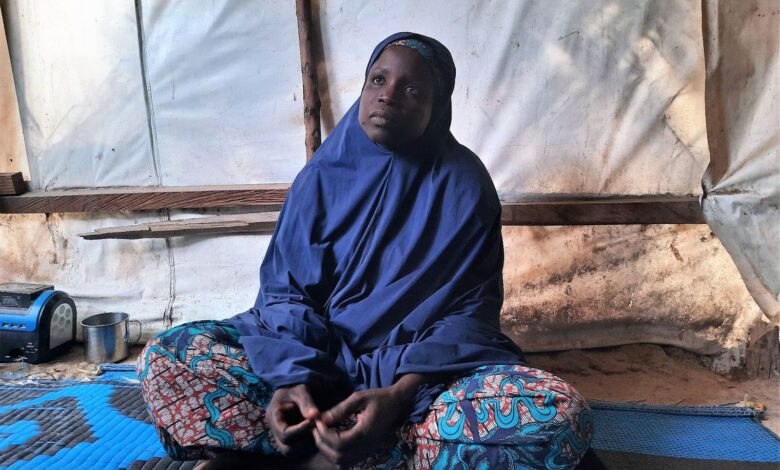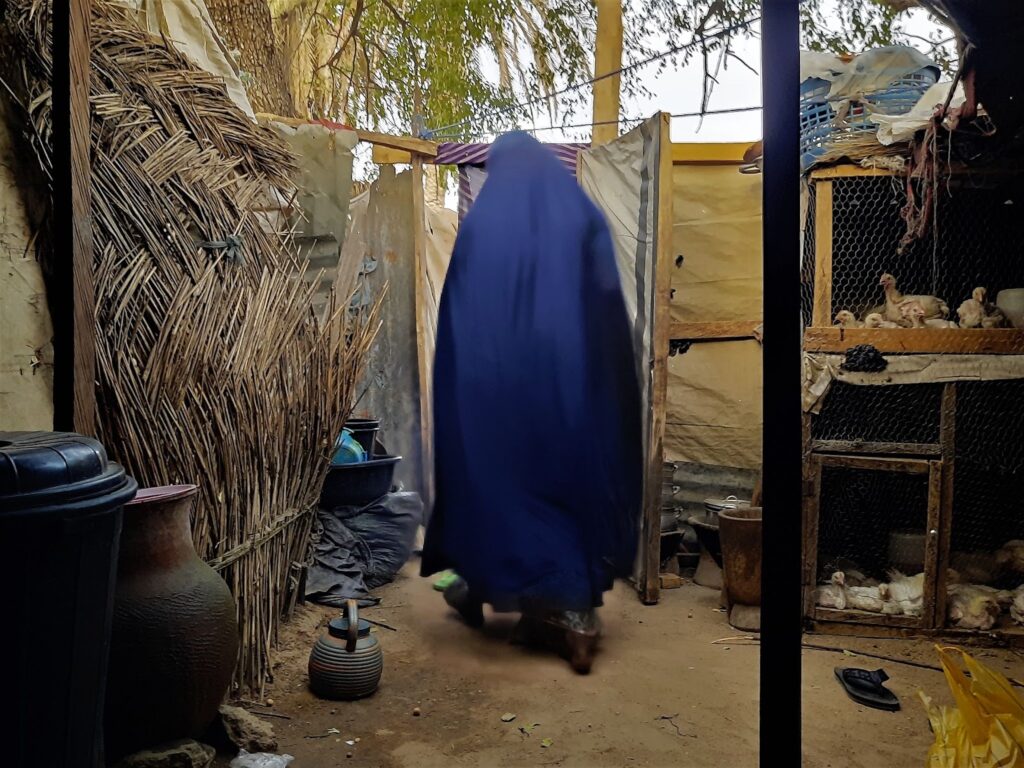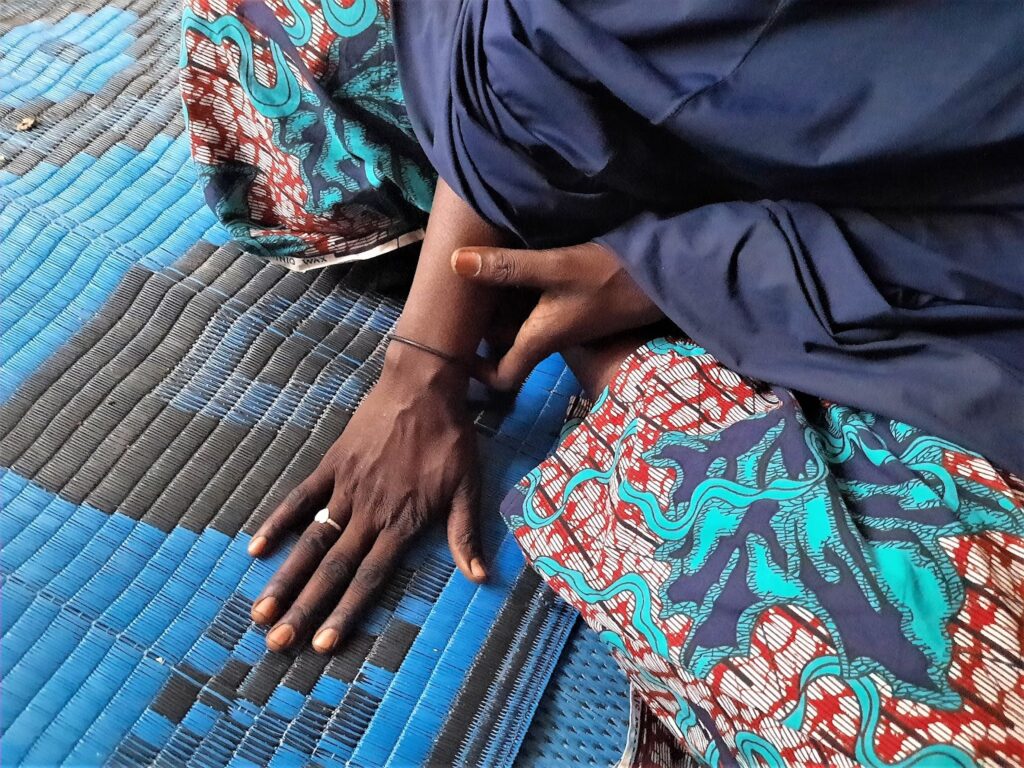Yakawu’s Void Can Only Be Filled With The Return Of Her Husband
As the couple escaped from Boko Haram’s growing influence in their hometown, Nguro Soye, in Bama, Northeast Nigeria, they thought it would be safer to take different routes. That has made all the difference.

Yakawu Bulama Mali, 30, has not seen her husband in a long time. Even if she wanted to somehow move on, she is constantly reminded of his absence each time she looks at her children: Baba Baanaye and Yaa Bawaána. Aged between 10 and 12 years, their faces are close replicas of their father’s. And if they are not around, being in the company of other married women has a similar effect on her, reminding her of the lingering, loud emptiness and all the things she could have had.
Baba Kura (Bakura) Ali Gajaw went missing in 2015.
In the months leading to that year, the terror group, Boko Haram, unrelenting in its campaign of violence, was expanding fast beyond its forest hideouts into major towns. The insurgents ruthlessly killed, abducted, and bombed. They occupied communities one after the other and hoisted their flags, imposing a strict interpretation of Islamic law. They forced young men to join them and forced young women into marriages. One of the places affected was Nguro Soye, a town in Bama, Nigeria’s northeastern state of Borno, and Yakawu’s hometown. Eventually, the couple knew it was time to leave.
Bakura suggested that they escape via different routes to Bama town, which was recaptured by the Nigerian army in March 2015. The terrorists were more brutal against men, so, by separating, Bakura thought they had better chances of survival. He set out with his brother, Mallam Modu Umaraye, 60, while Yakawu left alongside Mallam Modu’s wife, Ya Fati Modu Buraye, and the children.
When the women and children got to the displacement camp in Bama, the men were nowhere to be found. A week later, still with no sign of her husband and facing an extreme food shortage, Yakawu left for Maiduguri, the state capital, and settled in a different camp for Internally Displaced People (IDP).
She is not sure what went wrong between Nguro Soye and Bama town but thinks Bakura and his brother may have been arrested by the military.
“We have inquired but people said they have not seen even their corpses,” she tells HumAngle. “We asked people from Nguro Soye, detention centres, and the maximum[-security] prison but up to now we have not seen them or heard about their whereabouts.”
One time, people from Soye held at the Borno maximum-security prison, sent letters to their families informing them of their condition. Seeing a glimmer of hope, she tried to get a message back to the detainees, asking for her husband, but no one could say what might have happened to him.
According to the International Committee of the Red Cross (ICRC), over 24,000 people are missing in Nigeria, mostly due to ongoing conflict in the northeastern region and representing half of the number across Africa. “This figure is only the tip of the iceberg and the full scale of the humanitarian fallout in Nigeria remains largely unknown,” the organisation said last September.
One of the commonest causes is arbitrary arrests by the military of people faintly suspected of being terrorists or supporting the insurgent groups. Amnesty International notes in a 2016 report that after the Nigerian army regained control of places occupied by Boko Haram in 2015, it arrested hundreds of young men, especially people fleeing from communities in Banki and Bama.
“Witness testimony suggests that these arrests were arbitrary, largely based on random profiling of men, especially young men, rather than on reasonable suspicion of having committed a criminal offence,” the advocacy group states.

Mallam Modu was a bearded tall man who spoke gently and walked slowly. The last time Yakawu saw him, his beard was black. She embraces the possibility that this may no longer be the case.
Bakura is tall too, and fair-skinned. He has big ears and a broken front tooth. His favourite meals often featured okra or vegetable soup. “We lived happily at home. He was gentle and has been kind to me since we married,” Yakawu says about her beloved.
The couple met at a madrasah (Qur’anic school), Yakawu as the pupil and Bakura as the instructor. He had travelled to Maiduguri as an almajiri child to study the Qur’an and then returned to Soye to share what he had learnt. The head of the madrasah had approached her parents on Bakura’s behalf to ask for her hand in marriage.

Since his disappearance, it’s been a struggle taking care of the children and herself. A non-governmental organisation, Save the Children, used to give her ₦20,000 every month but stopped about a year ago. So now all she has left are cap-knitting gigs that earn her an average of ₦7,000 per cap. But each one often takes several weeks to make.
“All we want is to find our husbands so that they can help in keeping the children. Two-thirds of the women here have no husbands and they are the ones taking care of their children,” she says, summarising her message to the government. She adds that the food supplies they get from the emergency management agency are grossly inadequate.
If she could send a message to Bakura as well, she wanted him to know the family was doing okay and praying for his return, her voice stormy with emotion as she says this. She would break down a few seconds later and then dry her face with the hem of her hijab. Seven years is a long time but she has not given up hope. Whenever the children ask for their father, she replies that he will be back one day.
The same optimism has kept her from tying the knot with another man.
This report was produced in partnership with the Open Society Initiative for West Africa (OSIWA) under the Missing Persons Register’s Population and Amplification Project.
Support Our Journalism
There are millions of ordinary people affected by conflict in Africa whose stories are missing in the mainstream media. HumAngle is determined to tell those challenging and under-reported stories, hoping that the people impacted by these conflicts will find the safety and security they deserve.
To ensure that we continue to provide public service coverage, we have a small favour to ask you. We want you to be part of our journalistic endeavour by contributing a token to us.
Your donation will further promote a robust, free, and independent media.
Donate HereStay Closer To The Stories That Matter




